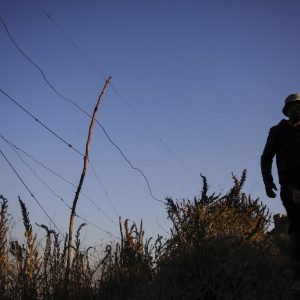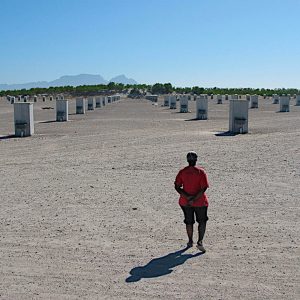More to corruption fight than arresting Magashule
Corruption in all its forms is the predatory enrichment of a minority at the expense of the impoverished majority, and should not be tolerated.
Author:
13 November 2020

Under Jacob Zuma, the ANC – and significant parts of the state – degenerated into organised kleptocracy. The rot ran deep into capital. Firms like McKinsey & Company and KPMG were deeply compromised. It also ran into the media and the broader public sphere. A number of publications, journalists and commentators were seriously compromised.
The private appropriation of public funds by politically connected individuals and a set of powerful families including the Zumas, the Guptas, the Watsons and the Mpisanes was extraordinarily brazen. It was not just carried out in plain sight, it was often celebrated.
We were well into the hallucinatory territory described by Ngũgĩ wa Thiong’o – in simultaneously comic and scathing terms – in his 2006 novel, Wizard of the Crow. With Number One surrounded by toadies and the wholesale destruction of state institutions and looting of public funds described as “pro-poor”, “Left” and “anti-colonial”, public life was a bit like an acid trip in a hall of distorting mirrors in a tacky, rundown funfair.
Related article:
In the push for Zuma to take the presidency, the SACP and Cosatu had argued that the parastatals would be used to drive transformation. Instead, they were wrecked and looted on a staggering scale. Eskom, Transnet and SAA all met the same fate, as did the National Lotteries Commission and the SABC.
Whole towns collapsed, there were publicly funded “housing developments” with no houses and a precipitous decline in the quality of public services. The enrichment of a minority was attained as a direct result of the suffering of the majority.
Premier of rot
Ace Magashule is far from being the only instance of an individual profiting at the expense of the people he claims to represent. But information in the public domain shows that his conduct during his time as premier in the Free State was scurrilous.
The R340 million allocated to the Estina dairy farm in Vrede was said to be an investment in empowering Black farmers. R30 million ended up going to fund the infamous Gupta wedding. It has been reported that most of the rest ended up in the hands of associates of the Guptas and just 1% was spent on anything to do with actual farming. The money diverted to the Guptas is said to have ended up in Dubai and India.
Related article:
The infamous R255 million contract to audit and assess 300 000 township houses with dangerous asbestos roofs was just as rotten. It was reported that only R21.3 million of the total amount of R230 million paid to the primary contractor was actually used to conduct the audit. The asbestos, which has been known to cause slow and painful deaths since 1906, was never removed. Instead, large amounts of cash were diverted to senior ANC politicians, including Magashule, who is alleged to have received R10 million.
People with asbestosis suffer pain, struggle to breathe and may live in this state for 10 years before death comes. People in the Free State will die agonising deaths because Magashule and others enriched themselves with money budgeted for an urgent public health matter.
The racket
Of course, it is true that corruption did not start with Zuma and has continued after him; that the apartheid state was deeply corrupt; that there is rank corruption in capital; that there is very little scrutiny of politicians who have been enriched by capital; that the media has sometimes focused on state corruption with a disturbing monomania that assumes that corruption is our only serious problem and paid scant attention to other serious issues like state repression, corporates smuggling their profits out of their country, or the lived experience of impoverishment, and so forth. But none of this is, in any way, a legitimation for the political class to become a predatory excrescence on society and for the state to be used to extract wealth from society.
The political class must be measured against the highest aspirations of the people, as developed in struggle. It is puerile to suggest that politicians should be measured against the apartheid state, or corporate corruption. Magashule’s conduct is in no way rendered acceptable by Markus Jooste’s corruption.
Related article:
Corruption is often discussed as if it were a purely moral issue. It is a moral issue, of course, but it is also a mechanism for the formation of a powerful new elite, and for the ruling party to fund itself. It has a political utility and it has political consequences.
We should recall Frantz Fanon’s excoriating account of the national bourgeoisie: “Its innermost vocation seems to be to keep in the running and to be part of the racket.” But we should also recall that Fanon doesn’t leave his analysis there. He builds three other important observations on this starting point.
Predatory elite
The first is that a predatory elite requires a legitimising ideology and that, in the postcolonial context, it will take the form of a claim, an empty claim, to radical nationalism. This, Fanon warns, will end in ethnic chauvinism and xenophobia: “From nationalism we have passed to ultra-nationalism, to chauvinism … foreigners are called on to leave; their shops are burned, their street stalls are wrecked”. The claim to radical nationalism will also mean that critics will be described as agents of colonial power.
Fanon’s second point is that a predatory political elite will, inevitably, use violent repression as well as ideological gymnastics to try and sustain its hold on power. People will be beaten, their houses set on fire.
Related article:
His third point is that the crisis of the post-colony can only be addressed by a return to popular organisation and struggle, and a shift “from national consciousness to political and social consciousness”.
During the Zuma period the ANC seemed to be following Fanon’s script to the letter. Repression escalated dramatically, and assassinations of grassroots activists were meted out with grim regularity. Xenophobia was rampant. It continues to be incited and exploited by the kleptocratic faction of the ANC. Earlier this month, men claiming to be Umkhonto weSizwe veterans violently shut down stalls run by migrants in central Durban. The veterans’ association has previously demanded that “foreigners” be detained in “camps” and then “deported”.
Credible prosecutions
Together with other forces in society, the faction of the ANC that has cohered around Cyril Ramaphosa aims to restore and expand the neoliberal elements in policy that were present in the ANC prior to the Zuma period. There is no prospect of a Ramaphosa government seeing itself as a political instrument for popular struggles, or advancing a social programme.
But this reality does not mean that our only political options are the two primary factions of the ANC. We can reject them both and we can organise against corruption, whether in either faction of the ANC, corporates or elsewhere.
It is, of course, essential that the investigation and prosecution of corruption cases must be run on an even-handed basis and not be liable to credible claims that there is a factional element, or that state corruption is being prioritised over corporate corruption. We also need to see Jooste in the dock as well as a number of politicians who aligned themselves with the Ramaphosa faction, including David Mabuza. There can be no fear or favour.
The issuing of a warrant of arrest for Magashule is a welcome step in the right direction.




